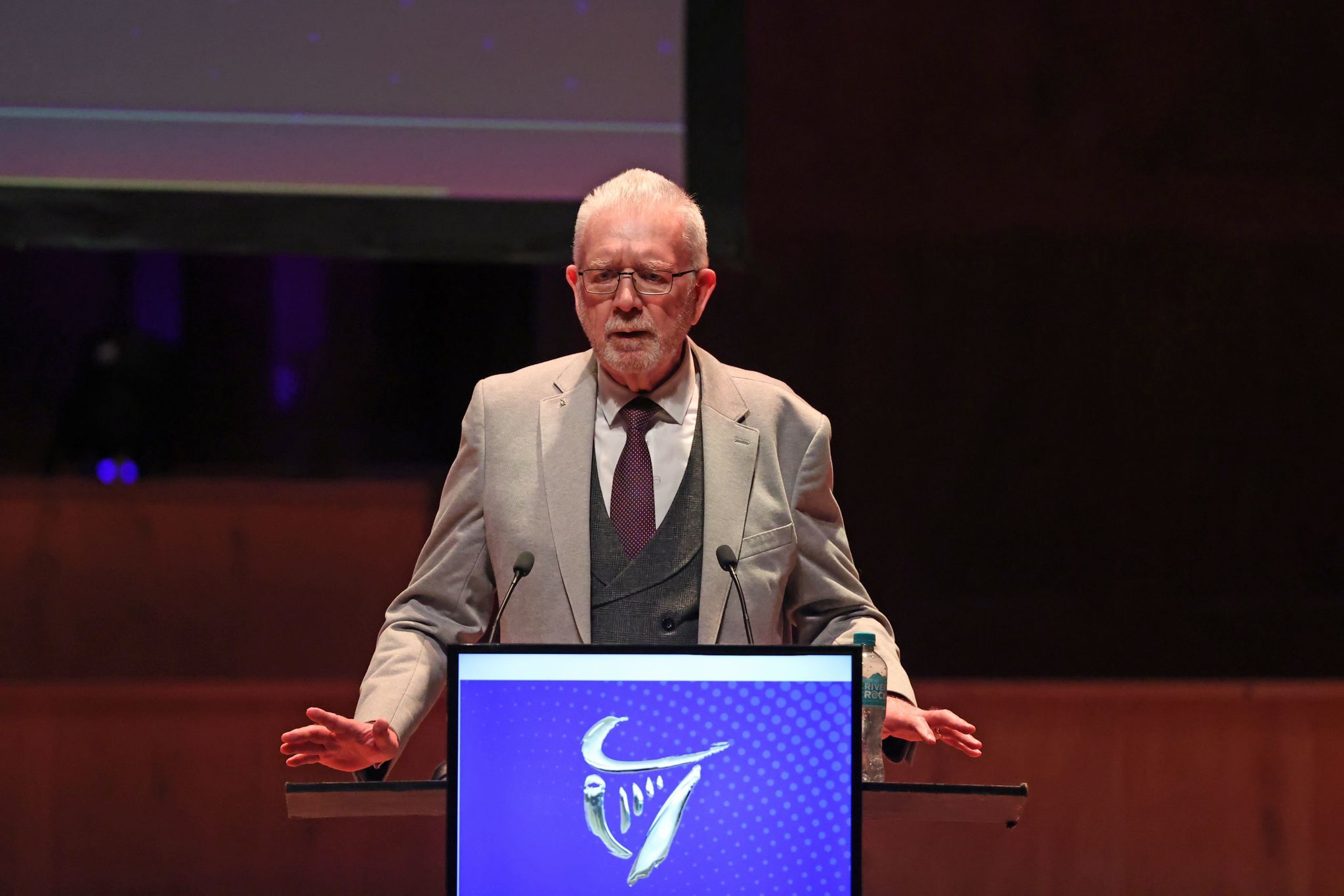It is the green-eyed monster which haunts Scottish politics. For years our nationalists have envied the Republic of Ireland, first for its freedom, then for its wealth.
The SNP and its allies - to use their own sometimes cheesy language - like to talk about joining an “arc of prosperity” that they see stretching from Dublin to Helsinki.
🏴 SCTgov should have had the powers to hold democratic consultative referendums devolved in the Scotland Act 1998.
— James Dewar (@IndigoFast) November 26, 2022
Weasel words apparently mean they weren't included.
The powers are referred to in Good Friday Agreement in Ireland.
Independence supporters are obsessed with how smallish sovereign states near Scotland are now better off than we are. And the Republic remains - for 'Yesser' politicians - the perfect rhetorical case study of what happens if you leave the UK.
It is like that moment on the old darts-themed quiz show Bullseye when host Jim Bowen used to say “look what you could have won” to losing contestants.
1/ While disappointed by it I respect ruling of @UKSupremeCourt - it doesn't make law, only interprets it.
— Nicola Sturgeon (@NicolaSturgeon) November 23, 2022
A law that doesn't allow Scotland to choose our own future without Westminster consent exposes as myth any notion of the UK as a voluntary partnership & makes case for Indy
Except, instead of a speed boat, behind the curtains there is a functioning Irish democracy in the EU.
I think Prof Henderson, in layman’s terms, was saying the UK is weird, that it is odd that different constituent nations or territories of the union state enjoy different rights. She has a point. The UK is held together with legal duct tape and string.
Now Scottish nationalists have found yet another target for their longing gaze: Northern Ireland. Or, more specifically, they covet a single constitutional right: that of self-determination.
BREAKING: @Douglas4Moray calls the Supreme Court decision ' a clear and unequivocal verdict delivered by the highest court in the country'https://t.co/EKzCMbCNrz
— Scottish Express (@ScotExpress) November 23, 2022
I am reluctant to tell readers on your side of the Sea of Moyle about how your future would, in theory at least, be settled.
SCOTLAND'S FUTURE: Mike Russell, President of SNP and former Scottish Government Minister addressing the Ireland's Future meeting in the Ulster Hall. Pic by Press Association
But please bear with me while I rehearse why Scottish nationalists are quite so envious of important nuances of the peace deal in your part of the world.
The Good Friday Agreement - as you will all know better than me - said “that it is for the people of the island of Ireland alone, by agreement between the two parts respectively and without external impediment, to exercise their right of self-determination on the basis of consent, freely and concurrently given, North and South, to bring about a united Ireland”.
SNP leader and Scottish First Minister Nicola Sturgeon has responded to the Supreme Court's decision that Holyrood cannot call a second independence referendum.
— Sky News (@SkyNews) November 23, 2022
More here 👉 https://t.co/1XvCL2dYmU pic.twitter.com/O1Qgbazpxk
And this principle, essentially, is written in to the constitution of the Republic and, in a very British and ad-hoc way, the Northern Ireland Act.
Moreover, the UK Secretary of State for Northern Ireland has a duty to organise a referendum on re-unification if there is demand for one. Why does this matter in Scotland? Because none of these rights and obligations apply here.
Today was important as it highlights the union is not voluntary partnership.
— Frankie (@Belgy67) November 23, 2022
Scotland should have the right to a referendum every political generation as defined in the Good Friday agreement as 7 years.
Last month [November] the Supreme Court of the United Kingdom spelled out this constitutional reality.
The SNP-led Scottish Government had formally asked judges if it had the powers to hold an independence referendum - one, in fact, that was pencilled in for October of next year. The answer was no.
This was not a big surprise. The future of the union, after all, was formally and explicitly reserved to Westminster in the Scotland Act 1998. Compare this with the Northern Ireland Act of the same year.
🏴🇬🇧 ICYMI: Has Nicola Sturgeon just been forced into playing a weaker hand in her announcement of a ‘de facto’ referendum?
— Peter A Smith (@PeterAdamSmith) November 24, 2022
It’s a gamble in which her independence movement can definitively lose, but winning doesn’t guarantee ‘the prize’ of independence. Why play those odds? pic.twitter.com/TPBbMIVXoq
Last month’s Supreme Court judgment, however anticipated, has lit up Scottish politics. For some nationalists it has sparked rhetoric of Scotland being a constitutional “prisoner”, locked in an an involuntary union against its will.
Mainstream pro-sovereignty leaders have recalibrated their language. They are now pointedly and controversially describing themselves as for democracy and their opponents as against it.
Indeed, First Minister Nicola Sturgeon has rebranded the Yes campaign as Scotland’s “democracy movement”. Her pro-UK opponents immediately - and performatively - took great offence. The SNP leader, they said, was using “the Trump playbook”.
From @HRW report on use of lethal (combat) weapons against unarmed people in #Karakalpakstan: «Human Rights Watch found evidence that #Uzbekistan security forces were equipped with #Kalashnikov-pattern rifles during the protests, as well as evidence of expended rifle cartridges». https://t.co/UAg4QZhdCI pic.twitter.com/ZcLsu21YNj
— Aqylbek Muratbai (@muratbaiman) November 7, 2022
Cue a predictable political “stooshie” - to use the ubiquitous Scots word for a good and proper row.
Yet amid all the noise, experts pointed out just how lop-sided the UK’s unwritten constitution was. Ailsa Henderson, professor of political science at Edinburgh University, summed this up, albeit in academic language. “Unsurprising from the court, but confirms that asymmetries in the union extend beyond legislative competence arrangements,” she tweeted. “There are clearly asymmetries of consent. Serial ad hocery has made a very unusual state.”
I think Prof Henderson, in layman’s terms, was saying the UK is weird, that it is odd that different constituent nations or territories of the union state enjoy different rights. She has a point. The UK is held together with legal duct tape and string.
But it is also worth stressing just how unusual Northern Ireland’s arrangements are, and how they were a response to a very particular set of circumstances.
I can only find one other sub-state polity in the world which enjoys a right to a plebiscite on independence. That is Karakalpakstan. This swathe of Central Asia rarely makes the news in Europe.
It known - if it is known at all - because its once great lake, the Aral Sea, is drying up.
An Ireland’s Future board member tells UTV the landmark ruling from UK Supreme Court on another Scottish Indy ref shows the need for ‘new & better ways at how we develop constitutional conversations - that should be from the ground up.’ @UTVNews pic.twitter.com/KZFPWwp5B4
— Judith Hill (@JudeHill_utv) November 23, 2022
Even if its name does not instantly ring bells, you have probably seen pictures of this nation’s fishing boats “floating” on sand dunes.
Karakalpakstan is a theoretically autonomous republic of Uzbekistan. It too has had a complex history. And its fate remains unsettled since the break-up of the Soviet Union.
This summer the Uzbek government - which is far from a democracy - tried to abolish the Karakalpaks’ right to self-determination. The result? Trouble, big trouble. At least twenty people died during protests.
Earlier this month Human Rights Watch, a global watchdog, condemned what it called called the “unjustifiable” violence used by Uzbek police.
Prosecutors in #Karakalpakstan fatal unrest trial that's just started will "argue that the violence had been preplanned by nebulous conspirators outside #Uzbekistan plotting to cause political unrest" - @eurasianethttps://t.co/Qc4iru00ZA See my report https://t.co/o2VOJEy21h
— Joanna Lillis (@joannalillis) November 28, 2022
Yet protestors prevailed: their constitutional right to a referendum stays. For now. Such arrangements - in places like Northern Ireland and Karakalpakstan -make some governments nervous. Spain’s, for example.
Madrid welcomed last month’s Supreme Court decision on a Scottish referendum. Let us not forget that Spanish constitutional judges ruled a 2017 plebiscite in Catalonia to be unlawful. Scottish nationalists, at least rhetorically, will continue to demand a Northern Irish style deal.
But I think the real issue here - and over the Sheuch - is political, not legal. What matters is if nationalists in Edinburgh and Belfast can build a solid undeniable majority for either independence or re-unification. UK authorities have never quite said how they would decide if there is sufficient demand for a constitutionally guaranteed Border Poll. And they never spell out what Scottish nationalists would have to do to get a second indyref. Goalposts can and do move.
To be fair to Scottish unionists, especially more moderate ones, they are careful to say “not now” rather than “never” to another referendum. But there is no clear sign of how UK authorities would decide whether to let Scotland have another big vote. The only thing the Supreme Court says is that any referendum will not be on the say-so of this country’s elected representatives.
PARLIAMENT: Government applying 'duck test' to case for #indyref2, says Alister Jack 🏴
— Politics.co.uk (@Politics_co_uk) November 28, 2022
"We believe that the majority of Scots do not want to have a referendum" pic.twitter.com/HGA6GY9UJi








